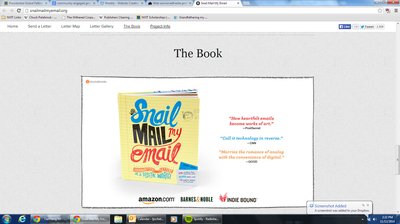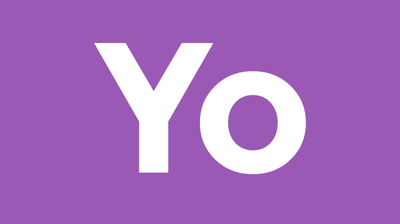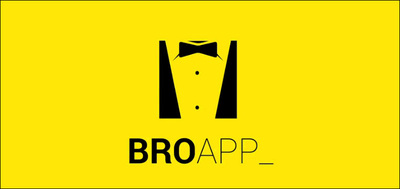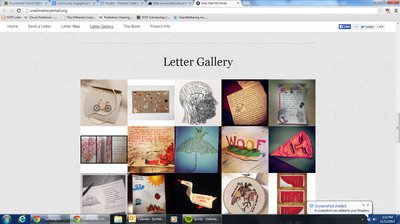|
Many of us will go home this evening and open up our mailboxes. Yes, the evening ritual of sorting bills and considering donations request, especially those envelopes with cleft pallets. Opening the mail is an emotional roller coaster; from the sadness brought on by student loans and financial statements, to the joy and hopefulness found in magazines and catalogs, followed by notes of shame, disgust and exploitation seen in donation requests. But every once in a while you get a letter, post card, and or greeting card. This not only brightens up your day but makes the world a betters place.
How would you feel if the person didn't hand-write your letter? What if Snail Mail Your Email sent it? What if interactive artist, filmmaker, and education Ivan Cash wrote it? Could we perhaps then add the feeling of betrayal to opening the mail? Like the mail, Ivan Cash is a mixed-bag or jack of trades human-being. In 2011 Cash came up with the idea of re-writing folks emails (in the snail mail sense) and sending them out over the course of a month. As a result, the idea was wildly popular whers he received over 10,000 requests and had to enlist volunteers from around the globe to help with the writing. Since then, Snail Mail My Email SMME now takes one week out of every year to continue this path of enlightenment, or busybody-ness. While conceived as conceptual art Cash is commenting on the lost art of communication and engagement which is captured in his book (or your letters) Snail Mail My Email. Cash has also received fame and notoriety via Brokelyn, CNN, BBC, NPR, FastCompany, BuzzFeed, Gawker, TIME, The New York Time, and Justapoz. Although slightly less revered but equally as heartless, Or Arbel created the Yo app to only have debuted April Fools Day 2014. Arbel received over $1 million from investors, mainly by Moshe Hogeg CEO of Mobli who originally desired an one button app to call his assistant. Yo is about as simple as it gets, one button one friend, one yo, you know. That is it, no other words, no other functions, just Yo fo Yo. Although seemingly stupid, Yo is now valued at $5 to $10 million dollars, claiming to have been downloaded over 2 million times and equating to four million Yo's being sent in one day. Now if Yo isn't enough for the Mrs. and/or Misses, while outsourcing Cash to cash in on your love letters isn't in the stars, BroApp might buy you some time. BroApp is a hypothetical wingman who automatically responds to the ladies for you. The relationship guru is customizable to the relationship status and frequency, thereby even recognizing her home wifi signal and cancelling pre-scheduled messages. The important thing here is that you are no longer on your own in a relationship, with the meddling of other you can either streamline with a simple Yo or flowery up communication to suit your needs.
0 Comments
Leave a Reply. |
LAJ
100 Objects of Popular and Material Culture is an blog exploring the manifestations of human consumption and commodity-ization. The purpose of this experiment is to explore material and popular culture in contemporary society by using objects and concepts to prompt wider questions and reflections. So by emulating The British Museum's and Neil MacGregor's format of A History of the World in 100 Objects I plan to satirically analyze and reinterpreted 100 material culture objects over the course of 2014. Material Culture is the study of our culture's consumption of stuff; namely the manifestation of culture through material productions where people's perceptions of objects is socially and culturally dependent. With this, objects reflect conscious and unconscious beliefs on the the individuals who fabricated, purchased, or used them, and by extension the society where they live. So examining materiality, cultural truths and societal assumptions may be discovered. As anthropologist Arjun Appaduai states "in any society the individual is often caught between the cultural structure of commodity-ization and his own personal attempts to bring a value and order to the universe of things." Objects and commodities make up a much larger symbolic system consisting of want and need, socio-economic status, fashion, etc. Often times form follows function whether the commodity, market, and or consumer forever evolve around one-another. Philosopher Pierre Bourdieu's theories of capital flow full circle; where regardless if you are a minimalist or a hoarder the world is made up of things and everyone will leave their footprint on the earth. So by humorously analyzing marketed objects and concepts, hopefully this blog will provide further incite into ideas of over-consumption, a disposable society, consumerism vs. anti-consumers, planned obsolescence vs. sustainability, as well as the greater good of mankind and future generations. Archives
March 2015
Categories |





 RSS Feed
RSS Feed